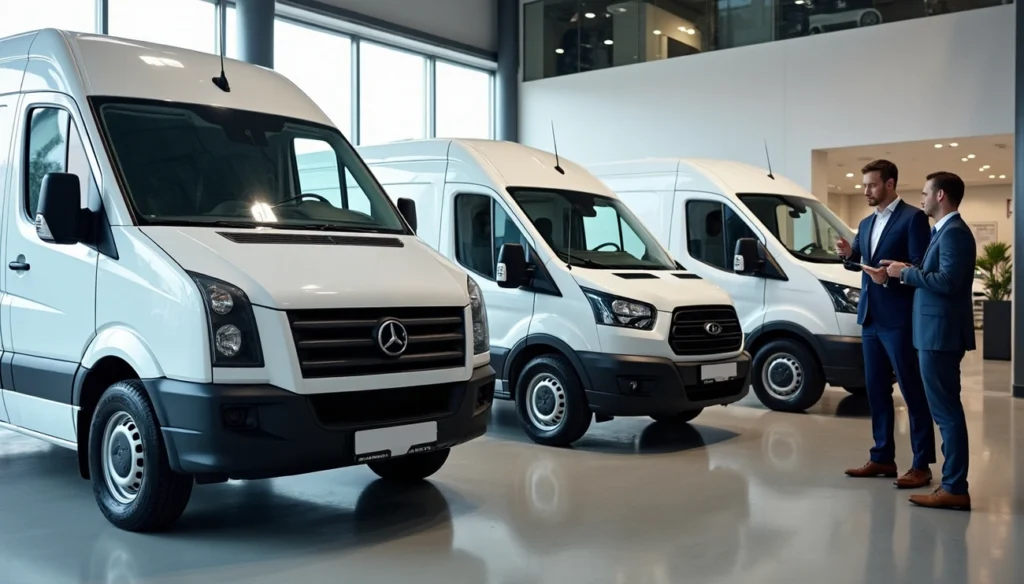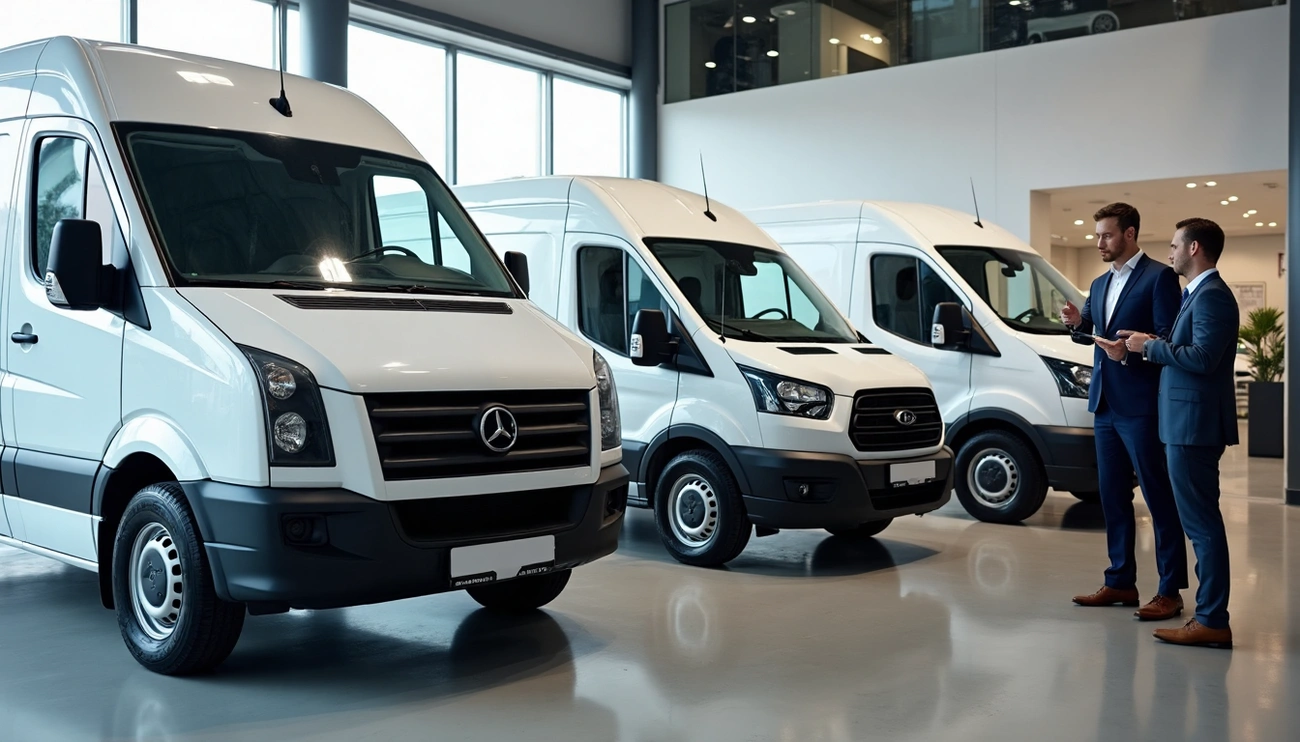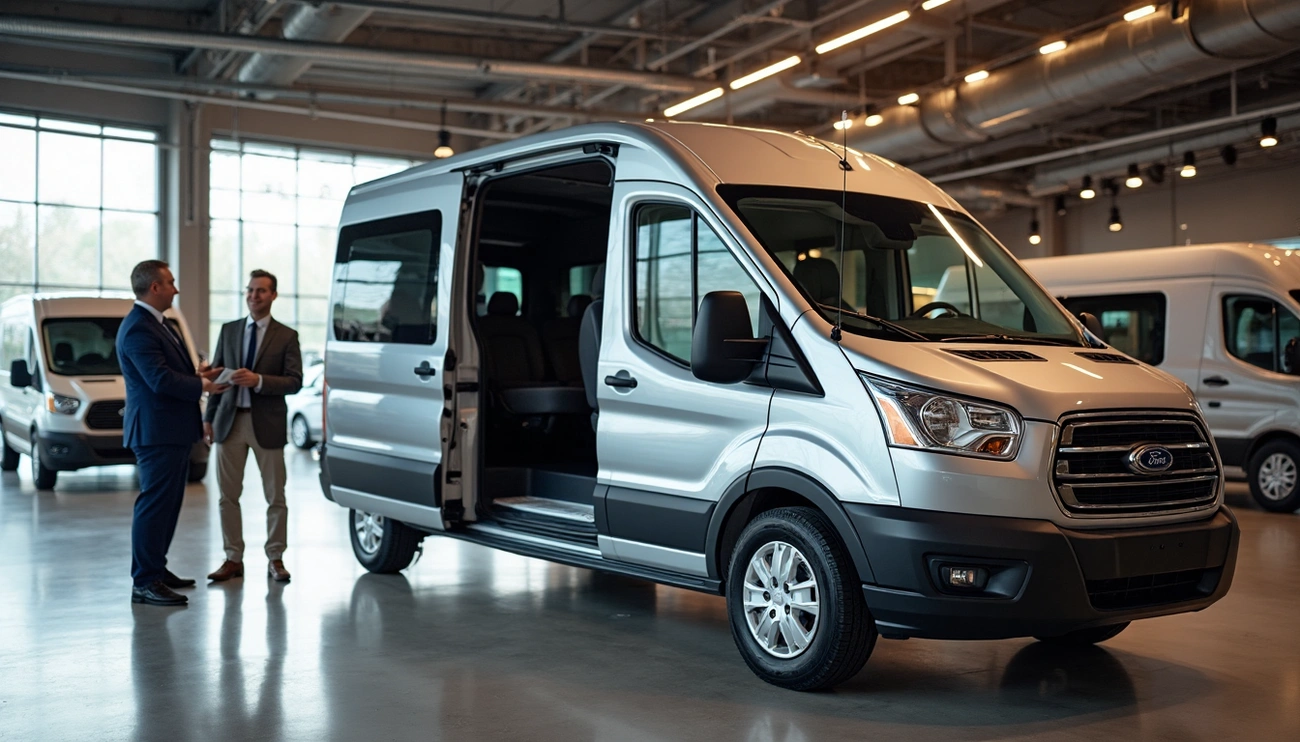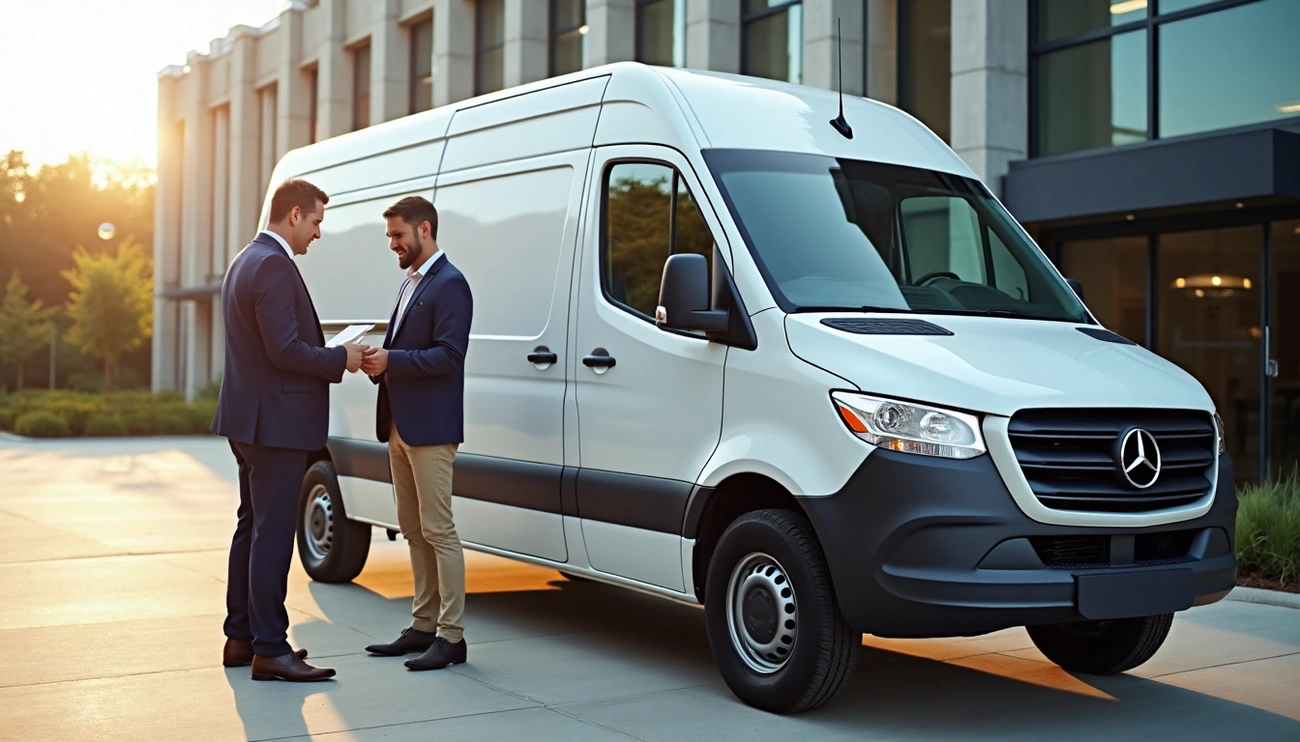Van Finance Companies
Finding the right van finance companies feels overwhelming—and for good reason. Van finance isn’t a one-size-fits-all solution. Your business needs matter, whether you’re hauling equipment across the country or making daily local deliveries. Source
Smart financing starts with understanding your options. Hire Purchase agreements run 12 to 60 months with deposits from 10%, while Contract Hire spans two to five years. VAT-registered businesses get specific perks since you’re paying for vehicle use when you actually need it. See van finance lease

Here’s what we’ll cover: different van finance companies types, how to compare lenders effectively, and what really matters before you sign. Plus, you can check your eligibility online without hurting your credit score—perfect for shopping around. See self employed van finance
Ready to find your ideal van finance deal? Let’s dig into the options that actually work for your business.
Understanding Van Finance Options
Three main financing routes exist—each built for different business van finance companies needs. Your choice depends on mileage requirements, ownership goals, and tax situation. See electric van finance
Hire Purchase (HP)
Hire Purchase gets you to van ownership. Pay a deposit (sometimes just one monthly payment) then fixed installments over one to five years. The finance company buys the van, you use it while paying, then you own it after the final payment plus option fee. See used van finance
HP works best for:
- High-mileage businesses
- Companies wanting ownership
- Predictable budget planning
The big win? No mileage limits. Perfect for couriers, builders, and anyone covering serious ground. VAT-registered? Reclaim your VAT deposit and offset 100% of interest against profits.
Contract Hire (CH) Van Finance Companies
Van Contract Hire means long-term rental—no ownership path. Pay initial rental (usually three monthly payments) then fixed monthly payments for 24 to 60 months. See business van leasing
Three factors set your monthly cost: van value, contract length, and annual mileage. Contract ends? Simply return the van.
Contract Hire suits businesses wanting:
- Fixed motoring costs with minimal upfront cash
- Protection from depreciation worries
- Optional maintenance packages in monthly payments
- Tax benefits (VAT-registered businesses reclaim up to 100% of VAT on maintenance and lease rentals)
The catch? Estimate mileage carefully—overages cost extra. Early termination hurts too.
Finance Leasing (FL) Van Finance Companies
Van Finance Leasing offers two flavors: Full Pay Out and Balloon. Both let you benefit from vehicle sale proceeds at term end. See Ford van leasing
Finance Lease Full Pay Out splits total cost evenly across the agreement—no final balloon payment. At the end, either enter secondary rental (annual fee to keep the van) or sell it for the finance company and take a percentage of proceeds.
Finance Lease Balloon cuts monthly payments by pushing part of the cost to a final balloon payment. You pay this regardless of sale proceeds. Great for cash flow but needs end-of-term planning.
Finance Leasing delivers key advantages: sale benefit opportunities, tax deductibility for business customers, and agreement extension flexibility. Perfect for businesses wanting tax breaks without outright ownership.
Compare these options across different van finance companies—the right choice aligns with your specific business requirements and financial circumstances.
How to Compare Van Finance Companies
Smart van finance decisions come down to four key factors that directly impact your bottom line. Skip the fluff—focus on what actually matters for your business.
Interest rates and repayment terms
Your interest rate determines how much you’ll pay beyond the van’s price. Expect rates between 8.9% APR and 24.9% APR, with your credit score being the biggest factor. Better credit equals lower rates because lenders see you as less risky.
Repayment terms typically run one to five years, though some lenders stretch longer. Shorter terms often carry higher rates as lenders want quicker profits. Longer terms mean smaller monthly payments but more interest over time.
Deposit requirements and flexibility
Most agreements need 10% to 20% upfront. Hire Purchase deposits often match the VAT amount (20%), which VAT-registered businesses can reclaim.
Low or no deposit options exist for tight budgets. The trade-off: higher monthly payments and stricter approval criteria due to increased lender risk.
Contract hire and leasing usually want three, six, nine, or twelve months’ worth of payments upfront. Bigger initial payments mean lower monthly costs.
Ownership vs. leasing options
Hire Purchase leads to ownership once you’ve made all payments. Perfect for businesses needing:
- Unlimited mileage freedom
- Asset ownership
- Long-term vehicle use
Contract Hire and leasing mean you’re renting. You pay monthly for 2-5 years, then return the van. Best for businesses wanting:
- Lower upfront costs
- Regular vehicle upgrades
- Protection from depreciation
Mileage limits and maintenance packages
Hire Purchase has no mileage restrictions—drive as much as you need.
Contract Hire and leasing cap annual mileage between 5,000 and 50,000 miles. Go over and you’ll pay extra charges, so estimate carefully. Your total allowance covers the entire contract—a three-year deal with 10,000 annual miles gives you 30,000 total miles.
Optional maintenance packages cover servicing, MOTs, and wear-and-tear items per manufacturer guidelines. They add to monthly costs but turn unpredictable maintenance into fixed expenses. Just know they won’t cover accident damage or driver errors.
Compare these factors across multiple lenders to find terms that match your specific business needs and budget.
Eligibility and Application Process
Getting approved for van finance isn’t as complicated as it sounds. Most lenders look for the same basic things, and knowing what they want upfront saves you time and protects your credit score.
Basic eligibility criteria
Here’s what most van finance companies expect:
You need to be a UK resident with at least three years of address history. Must be over 18 with a valid UK driving license. Makes sense—lenders want proof you can legally drive what you’re financing.
Self-employed or running a sole trader business? Expect a few extra hoops. Many lenders want your company officially registered with a company number and trading for at least two years. Some even expect your net profit to be double what you want to borrow.
VAT registration doesn’t affect eligibility, though it might unlock better tax benefits. Business customers typically need to show positive trading records.
Documents you’ll need to apply
Get these ready before you start:
- Proof of identity: Valid passport or driver’s license
- Proof of address: Recent utility bills or bank statements from the past three months
- Income verification: Three months of bank statements, payslips, or tax returns for self-employed applicants
- Bank details: Account number and sort code for the repayment account
Self-employed applicants need extra paperwork—tax returns, SA302 forms from HMRC, and potentially three years of employment history. Having everything organized shows you’re serious and speeds up the whole process.
Soft vs. hard credit checks
This distinction matters when shopping around for van finance.
Soft credit checks give lenders a peek at your credit history without affecting your score. Many van finance brokers offer free eligibility checks using soft searches, so you can compare options safely.
Hard credit checks leave a mark on your credit report that other lenders can see. Multiple hard searches in a short period can lower your score. Most lenders start with a soft check during pre-approval, only doing a hard check when you’ve chosen your van and are ready to finalize everything.
Got poor credit? Expect closer scrutiny. Previous missed payments, CCJs, or inconsistent income make approval trickier, though there’s no minimum credit score requirement for van finance.
The key is knowing what to expect before you apply.
Benefits of Choosing the Right Van Finance Lender
The right van finance company becomes more than just a lender—they become your business partner. Smart financing unlocks real advantages that go way beyond just getting keys to a new van.
Improved cash flow management
Buying vans outright drains your business bank account fast. Van finance spreads costs over manageable monthly payments, keeping your cash reserves available for other essential expenses. Your working capital stays intact for growth opportunities instead of sitting in a depreciating asset.
Fixed monthly payments make budgeting simple. You know exactly what you’re paying each month, making financial planning straightforward. This predictability works brilliantly for businesses with seasonal ups and downs.
Access to newer van models
Finance arrangements let you upgrade vehicles more frequently than outright purchases allow. Regular renewals mean your fleet gets the latest technology and efficiency improvements, reducing downtime from maintenance headaches.
Some lenders offer Green Asset Finance with lower rates for electric, hybrid, and hydrogen vans. These deals often include charging infrastructure funding too.
Tax-deductible options for businesses
Smart financing creates genuine tax advantages:
- Interest payments are typically tax-deductible business expenses
- Self-employed individuals can claim capital allowances—full value or percentage deductions
- Vans with emissions above 75g/km qualify for Annual Investment Allowance (currently £1,000,000)
- Low-emission vans (≤75g/km) get First Year Allowance—100% cost deduction from taxable profits
- VAT-registered businesses reclaim 50-100% of VAT on lease payments depending on usage
Better brand image and employee incentives
Your van is your mobile business card. Research shows 44% of people judge work quality by vehicle condition. Two-thirds of consumers factor vehicle appearance into hiring decisions.
Modern, well-presented vans project success and reliability. Plus, providing employees with newer vehicles boosts morale and retention—a win-win for everyone involved.
Choose your van finance company carefully. The right terms support both immediate needs and long-term business growth.
Pros and Cons of Van Finance Deals
Van finance offers clear benefits—but comes with trade-offs worth understanding before you sign. Here’s what you need to know about the advantages and potential drawbacks.
Advantages of van finance
Monthly payments make van ownership achievable without draining your business account. You can access newer, higher-spec models that might otherwise stretch your budget. This matters for businesses where first impressions count—customers notice well-maintained vehicles.
Tax benefits add real value. Monthly payments are typically tax-deductible, and VAT-registered businesses can reclaim 100% of VAT on lease payments. This frees up capital for other business investments.
Disadvantages to consider
The lender owns the van until you’ve paid everything. This limits customization options—not ideal if you need specific modifications.
Mileage restrictions apply to some agreements[264]. Exceed the limit and you’ll face extra charges. Early termination also triggers penalties, potentially including remaining payments plus additional fees.
When to avoid van finance
Cash buyers with stable finances might prefer outright purchase. You’ll skip monthly payment worries entirely.
Poor credit history makes favorable terms harder to secure. Lenders see higher risk and adjust terms accordingly.
Unstable business circumstances create problems. Miss payments and you risk repossession, leading to legal complications and operational disruption.
Smart financing works when terms match your business reality. Consider your cash flow, credit position, and long-term needs before committing.
Your Next Steps
Van finance success comes down to matching the right option with your specific business needs. High-mileage operations need Hire Purchase for unlimited driving freedom. Fixed-cost preference? Contract Hire eliminates depreciation worries. Finance Leasing splits the difference with tax perks and potential sale returns.
Compare interest rates, deposits, and terms across multiple lenders—this homework saves serious money. Use soft credit checks to shop around without damaging your score.
The right arrangement does more than put you behind the wheel. It protects your cash flow, builds your professional image, and unlocks valuable tax benefits. Many businesses find that spreading costs through financing frees up capital for growth while maintaining a sharp-looking fleet.
When van finance makes sense:
- You need predictable monthly budgeting
- Cash flow matters more than outright ownership
- Professional appearance impacts customer perception
- Tax advantages benefit your business structure
Skip financing if:
- You have plenty of cash reserves
- Your income fluctuates unpredictably
- Business circumstances change frequently
Ready to secure your ideal van finance deal? Start with soft credit checks, compare your top three lenders, and choose terms that support both your immediate needs and long-term business goals.
Your van finance decision impacts operations for years—make it count.
Key Takeaways
Understanding your van finance options and comparing lenders carefully can save thousands while supporting your business growth objectives.
• Compare interest rates (8.9%-24.9% APR), deposit requirements (10-20%), and repayment terms across multiple lenders to secure the best deal for your situation.
• Choose Hire Purchase for unlimited mileage and eventual ownership, Contract Hire for fixed costs without depreciation risk, or Finance Leasing for tax benefits.
• Use soft credit checks to compare eligibility without damaging your credit score before applying with your preferred lender.
• Van finance preserves working capital, provides tax deductions for businesses, and enables access to newer models that improve brand image.
• Avoid financing if you have sufficient cash reserves, unstable income, or frequently changing business circumstances that could affect repayment ability.
The right van finance arrangement becomes a strategic business partnership that enhances cash flow management while providing operational flexibility. Take time to evaluate how each option aligns with your mileage needs, ownership preferences, and long-term business objectives before committing to a multi-year agreement.




